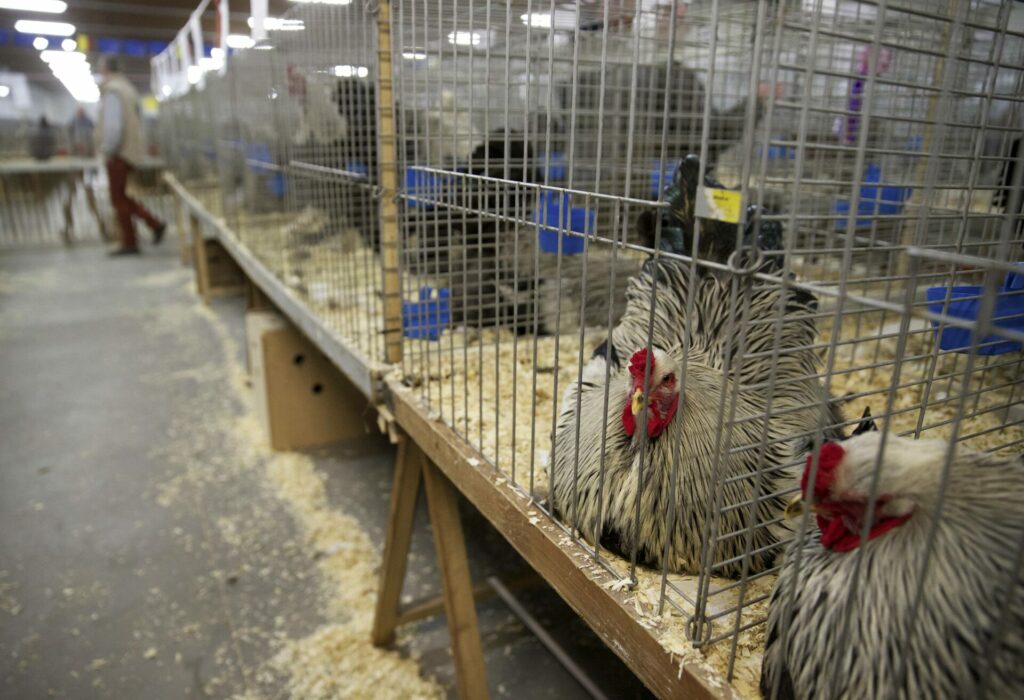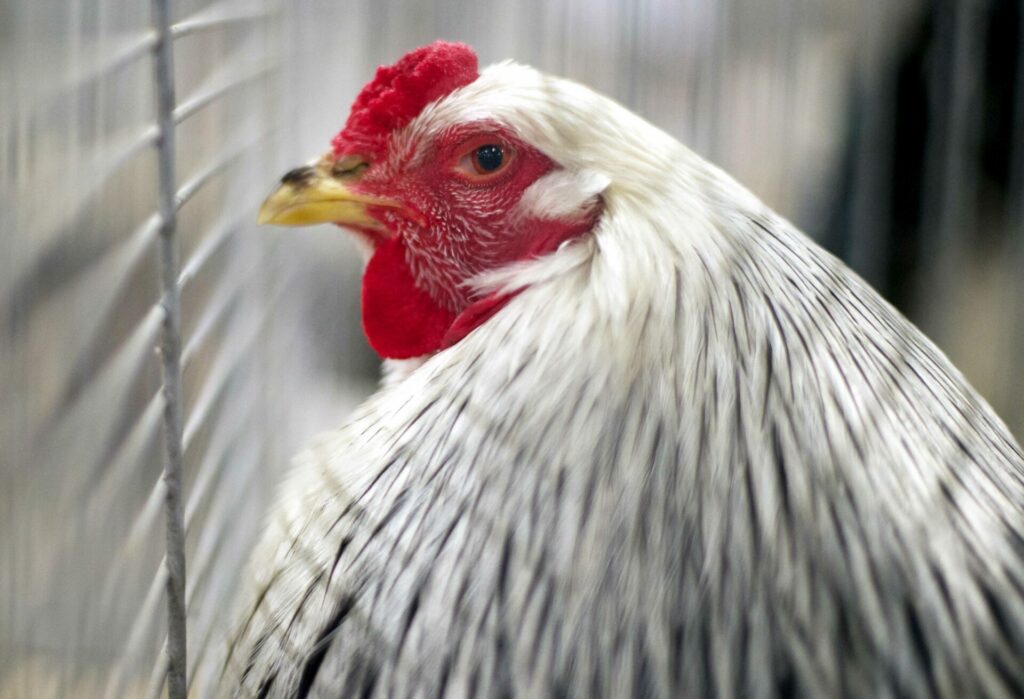Europe is currently experiencing the worst season of bird flu in its history, as for the first time, the virus no longer hits in waves but remains a constant presence – posing major problems for the poultry farming sector.
Over the last year, some 50 million birds were slaughtered in 37 countries affected by the avian flu outbreak across Europe. Even during the summer, the outbreak could not be controlled, meaning the virus remained continuously present.
"It is a serious virus, at least for poultry," Professor Gunther Antonissen, who conducts research into poultry health at the Faculty of Veterinary Medicine at Ghent University, said on Flemish radio. "The disease causes a lot of mortality, up to 100% of all infected animals."
Over the past year, the virus was also continuously present in Belgium, even though the situation is slightly less serious than in the neighbouring countries, the Netherlands, Great Britain and France.
Quickly mutating virus
"The Netherlands has slightly more water than Belgium, and wild waterfowl are the main vector of the virus," he said. "They can carry and transmit it. This has to do with the migration: the sources of infection in Europe are usually on the migratory routes of the birds, they always have been."
Now, however, birds that do not migrate are also susceptible to the virus – there have been a number of changes in the influenza virus, which mutates quickly, just like the human flu virus. "It used to have a low-pathogenic form in waterfowl, and only caused very mild respiratory problems."
Then it jumped to poultry and became a highly pathogenic form that causes a lot of deaths, up to 100% of all infected animals, Antonissen emphasised. "Yet we see that the virus remains present even in this highly pathogenic form in waterfowl and can jump over to poultry. And not just industrial poultry, but also from private individuals and even zoos."
As a result, the virus remained present all year round. "We can see from the European figures that the virus has not gone away in wild birds. The problem remains."

Credit: Belga/Nicolas Maeterlinck
If a bird becomes infected, there is a very good chance that it will die as the form currently circulating causes very serious respiratory symptoms, possibly nerve symptoms, coughing and sneezing. "But the main symptom is death," said Antonissen.
In the past, animals were often preventively slaughtered to stop the further spread of the virus – a measure that would currently still be used in the event of a large outbreak. "But we are dealing with a changing virus. We are going from an epidemic situation to an endemic one, meaning a different approach is needed."
Therefore, the World Organisation for Animal Health (OIE) has decided to view vaccination as an alternative route. "But it is not an easy virus to vaccinate against. We all know the flu virus, which is also an influenza virus. You must request that vaccine annually."
Related News
- Bird flu kills over 22,000 seabirds in Peru
- No human transmission of largest avian flu epidemic in Europe ever
- Bird flu detected in poultry farm in Flanders
While poultry is already vaccinated against many diseases, the avian flu virus changes very quickly, which means adjusted vaccines are often necessary as well. Additionally, Antonissen pointed out that it also causes practical problems for world trade: at the moment, there are trade restrictions in place for countries that vaccinate as the entire region is then viewed as 'positive'.
"That is because it is not easy to distinguish between infected and vaccinated animals. As a country, you can no longer export your poultry production, which is why we are not currently vaccinating in Belgium." A number of research projects into newer types of the vaccine are currently underway in France and the Netherlands.
"Under normal circumstances, the virus will not just spread to humans. It is certainly possible, but it mainly concerns people who have very intensive contact with poultry, such as poultry farmers or veterinarians," he added. "Before it can become an epidemic (among humans), a number of mutations are still needed in the virus, usually in conjunction with a person who already has a flu virus."

